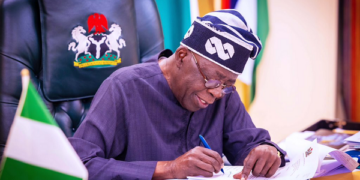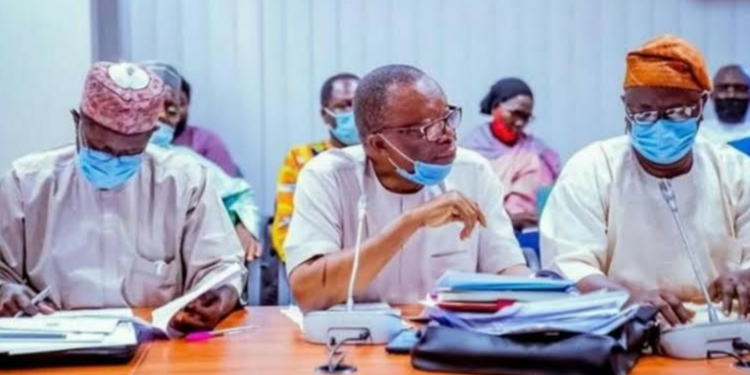The Academic Staff Union of Universities’ National Executive Committee will begin a two-day meeting today at the University of Lagos, Akoka, to finalize the union’s decision on an upcoming strike.
According to Saturday Punch, ASUU will make the final decision on the strike – to be reached by voting – known at the end of the meeting on Sunday.
The union has previously expressed its dissatisfaction with the Federal Government’s failure to execute some of the promises it had made as early as 2009. On November 15, 2021, ASUU issued a three-week ultimatum to the Federal Government for failure to satisfy the demands.
The lecturers threatened to embark on another round of industrial action following the alleged “government’s unfaithfulness” in the implementation of the Memorandum of Action it signed with the union, leading to the suspension of the 2020 strike action.
After the union’s National Executive Council meeting at the University of Abuja on November 13 and 14, ASUU President, Prof. Emmanuel Osodeke, lamented that despite meeting with the Minister of Labour and Employment, Dr Chris Ngige, on October 14, 2021, on issues, including funding for revitalisation of public universities, earned academic allowances, University Transparency Accountability Solution, promotion arrears, renegotiation of 2009 ASUU-FGN agreement, and the inconsistencies in Integrated Payroll and Personnel information system payment, none of its demands had been met.
Following the threat, the Minister of State for Education, Emeka Nwajiuba, promised that the union would be paid.
A few weeks after, ASUU suspended the planned strike as N22.1bn earned allowances was paid to lecturers in federal universities.
Following the union’s renewed agitations, the co-chairmen of the National Inter-religious Council, the Sultan of Sokoto, Muhammad Abubakar III, and the President of the Christian Association of Nigeria, Dr Samson Ayokunle, met with President Muhammadu Buhari last month to discuss the government’s failure to implement the Memorandum of Understanding signed with ASUU in 2009, among other issues.
During the discussion, Buhari stated that the government was still committed to keeping the pledges made to ASUU. The President further indicated that he had directed Ngige, Adamu Adamu, Minister of Education, and his (Buhari’s) Chief of Staff, Prof. Ibrahim Gambari, to investigate the union’s requests.
But Osodeke in an interview with one of our correspondents insisted that the Federal Government could not be trusted despite the promise of the President.
The union consequently declared Monday, February 9, 2022 as a lecture-free day to mobilise its members ahead of what it described as the longest strike in history.
Several chapters of the union embraced the directive and had held several congresses where they told the public to hold the government responsible if the union decides to embark on strike.
A final decision on the looming strike will be reached this weekend as ASUU NEC meets from February 12 (today) and February 13, at UNILAG.
Another NEC told Saturday PUNCH that the decision on strike would be put to voting and all the members present would vote either for or against it.
He said, “The president of our union is not the one to decide on the strike. Also, none of the officers is expected to unilaterally decide on it. The issues at stake are to be tabled and debated at the meeting.
“Then, all the NEC members will vote either for or against the strike. Whatever we decide on Sunday would form the next line of action.”
Asked if there are enough grounds for the lecturers to go on strike, the source answered in the affirmative.
“Yes, we have even started the strike earlier than now. But as parents, we have been waiting for the government to yield the ground and fulfil the agreements it voluntarily entered with us,” the source added.
Efforts to reach Adamu proved abortive as he neither picked calls nor replied to a text message sent to his phone number.
But Nwajiuba declined to comment on the union’s meeting, where the ultimate decision on the impending strike would be taken.
Meanwhile, Ngige has promised to step into the dispute between the Federal Government and ASUU if the Ministry of Education and the National Universities Commission fail to resolve the issue.
The minister told one of our correspondents on Friday that his ministry could only perform a reconciliatory role as it is not the employer of the lecturers.
He said, “The Ministry of Education is their employer and we have handed over the necessary tools to them. The major issue with ASUU now is the deployment of UTAS which is under the purview of NITDA which is under the Ministry of Communication and Digital Economy. The NUC also has its own role to play.
“My role is to play a reconciliatory officer. If their employers and the NUC fail to reconcile them, then I step in as the reconciliatory officer. It’s not more than that. But I know their employers are finding ways to resolve these issues.”










Discussion about this post